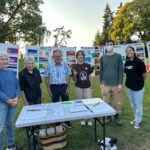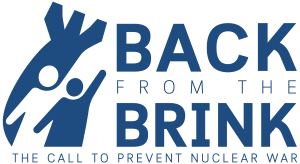As we celebrate Black History Month, it is crucial to shine a light on the intersection of Blackness and an issue often overlooked in the narrative of racial justice – nuclear weapons. The pages of history hold the stories of civil rights leaders, Black Panthers, and black feminists who, in their fight for justice, also raised their voices against the looming threat of nuclear devastation.
The struggle for racial equality has been intertwined with the battle against nuclear weapons, a connection that is often erased from the annals of history. Leaders such as Martin Luther King Jr. and Malcolm X, whose legacies are deeply embedded in the fight for civil rights, were also vocal advocates for disarmament and believed that the funds poured into nuclear arsenals should instead be invested in the betterment of marginalized communities.

Photograph by Judi Desire. Source: Flickr. Licensed under CC BY-NC-ND 2.0.
Malcolm X also drew parallels between experiences of violence during a reception he hosted with Japanese-American activist Yuri Kochiyama for Japanese writers and hibakusha as part of the Hiroshima/Nagasaki World Peace Study Mission: “You have been scarred by the atom bomb. You just saw that we have also been scarred. The bomb that hit us was racism.”
Vincent Intondi’s book, African Americans Against the Bomb, talks greatly about these intersections. In his book, he mentions how the Black Panther Party recognized that their fight against systemic racism also addressed the issue of nuclear weapons. They highlighted the disproportionate impact nuclear testing had on communities of color, exposing residents to dangerous levels of radiation. The connection between racial injustice and nuclear weapons becomes painfully evident when we realize that marginalized communities often become the dumping grounds for hazardous waste and are more susceptible to the harmful effects of nuclear activities.
Black feminists, too, have been part of the conversation. Women like Angela Davis and Coretta Scott King have spoken out against the inherent violence of nuclear weapons, linking it to the broader struggle for justice. Reported on May 21st, 1962, in the Chicago Defender, Mrs. King conveyed, “It is of vital importance that we solve world tensions and bring about understanding between nations. If we fail in this, then the world is lost and our efforts in race relations will have been in vain… We are on the brink of destroying ourselves through nuclear warfare.”
Both women were part of the Women’s International League for Peace and Freedom (WILPF). Black women in this group highlighted the fact that the nuclear arms race disproportionately affects Black communities, exacerbating existing inequalities. After 1945, WILPF dedicated significant efforts to nuclear disarmament. As a member of the organization, Erna Harris actively engaged in nuclear issues, consistently asserting that the concept of a “peace-atom” was non-existent.

Coretta Scott King during her travels to meet with peace organizations in the 1960s, including WILPF. Pictured with British Labour M.P. Joyce Butler, who was a long-term member of WILPF.
Embarking on my exploration of this often-overlooked facet of Black history and activism, I was struck by the realization of the deliberate erasure of these narratives. Despite my deep commitment to racial justice, reflected in my extensive involvement in classes and internships dedicated to Black liberation in the past, the absence of discourse on Black leaders opposing nuclear weapons resonated profoundly when I was first introduced to the Back from the Brink campaign. This silence underscored the intentional oversight at the intersection of racial justice and the nuclear issue.
The impact of nuclear weapons extends beyond a global concern; it’s a local issue that disproportionately affects Black communities. The fallout from nuclear testing, the strategic placement of facilities, and the looming potential for nuclear accidents create a dire situation for marginalized populations. As we collectively strive for a more just world, it becomes imperative to amplify these voices and acknowledge the interconnected struggles for racial equality and disarmament.
In my ongoing efforts, particularly in organizing a multiracial and multigenerational Hub in Southern California, I aim to bridge these sentiments with the broader spectrum of voices advocating for justice. While not specific to Black voices, this work inherently recognizes the importance of diversity and inclusivity in addressing the multifaceted challenges of our time.
In our collective pursuit of a better future, let us remember that the fight against nuclear weapons is not isolated from the broader battle for justice. Black History Month provides an opportunity to reframe the narrative, to acknowledge the leaders who saw the connection between racial injustice and nuclear weapons, and to work towards dismantling both oppressive systems. Only by understanding the intersectionality of these struggles can we pave the way for a more inclusive, equitable, and nuclear-free world.
Written by Maylene Hughes, Grassroots Organizing and Policy Coordinator for PSR-LA‘s Nuclear Threats program
Resources & Further Reading
Intondi, Vincent. “W. E. B. Du Bois to Malcolm X: The Untold History of the Movement to Ban the Bomb.” Common Dreams, 30 Jan. 2023, https://www.commondreams.org/views/2015/08/04/w-e-b-du-bois-malcolm-x-untold-history-movement-ban-bomb
Intondi, Vincent Joseph (2009). From Harlem to Hiroshima: African Americans and the bomb, 1945-1988. American University. Thesis. https://doi.org/10.57912/23880936.v1
“Black Excellence in Nuclear Activism.” Global Zero, 6 Mar. 2023, www.globalzero.org/updates/black-excellence-in-nuclear-activism/
African Americans Against the Bomb: Nuclear Weapons, Colonialism and the Black Freedom Movement, Vincent J. Intondi, 2015. Groundbreaking book on the central role that African Americans have played in the effort to reduce and eliminate nuclear weapons from 1945 to the present day.
Remarks by President Barack Obama, Prague, April 5, 2009. Speech in which he declared at the beginning of his presidency “I state clearly and with conviction America’s commitment to seek the peace and security of a world without nuclear weapons.”







